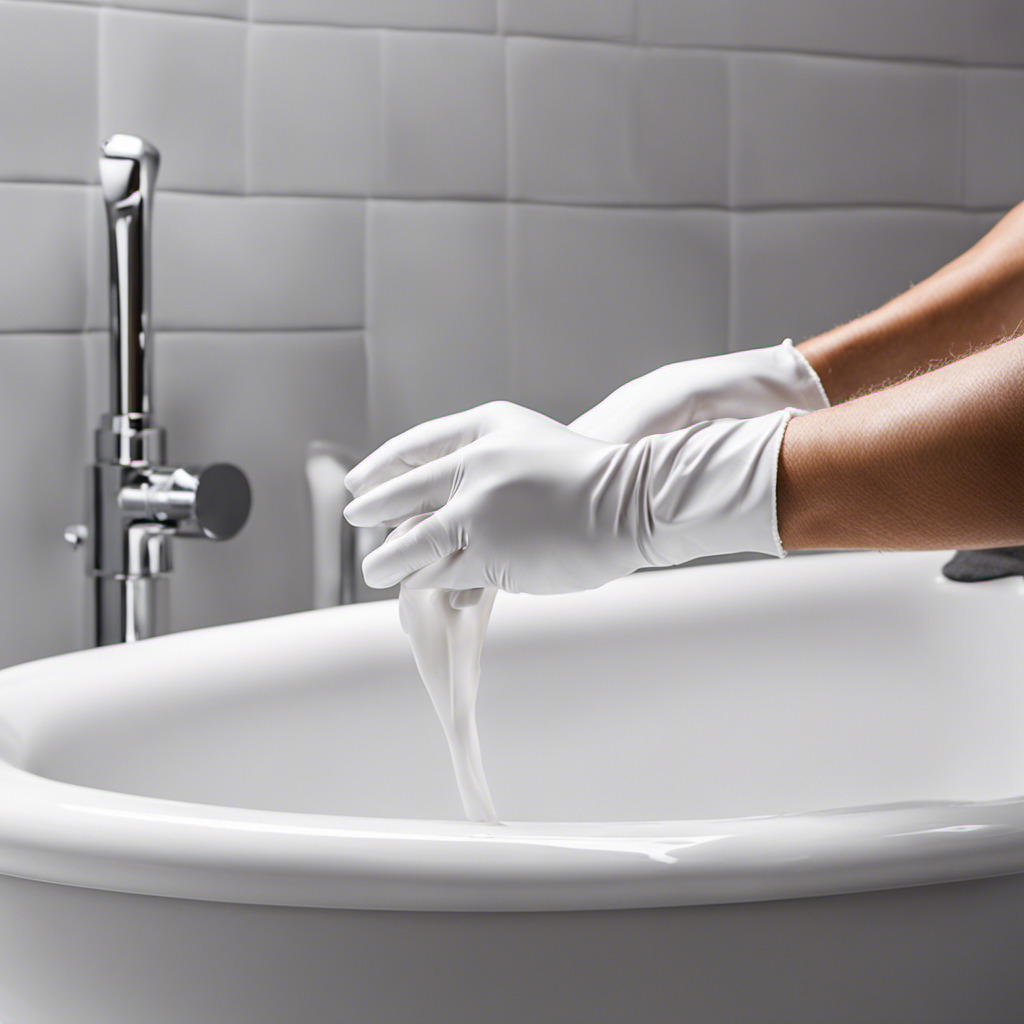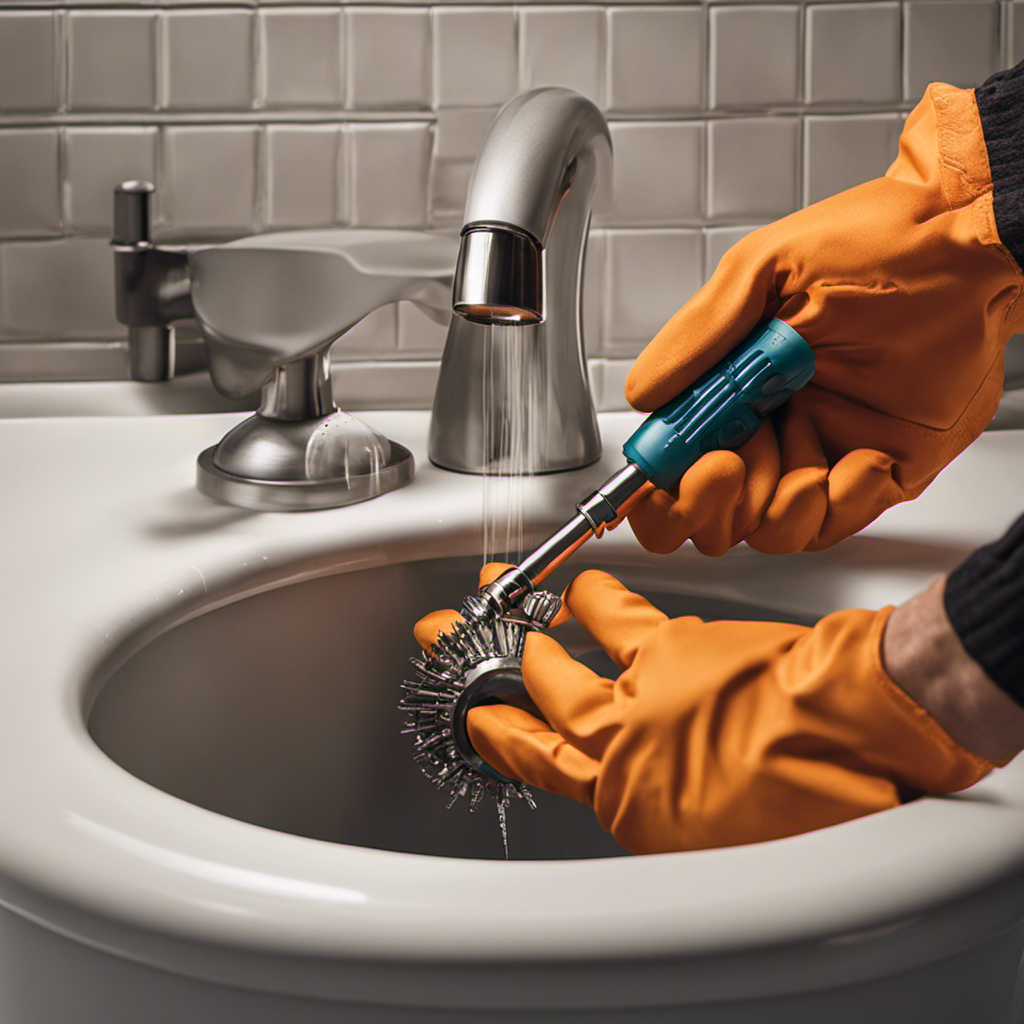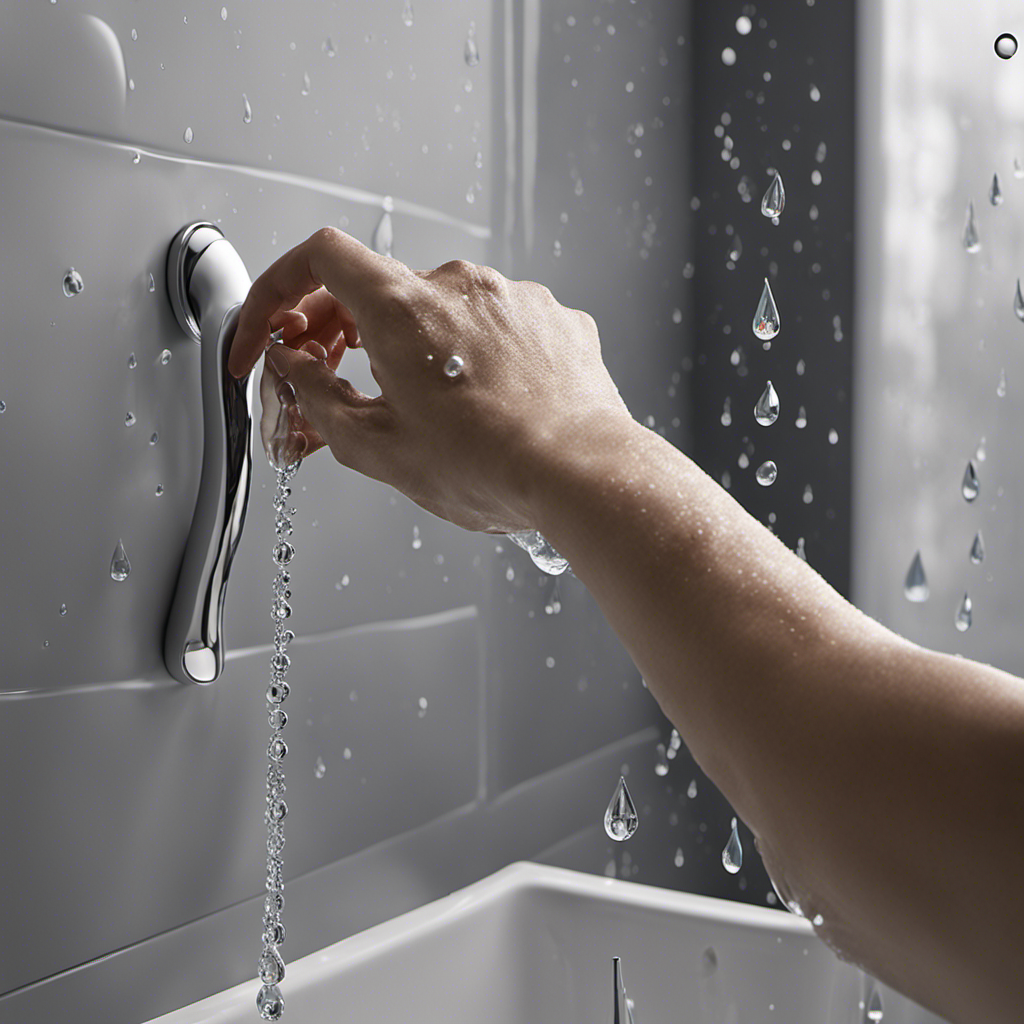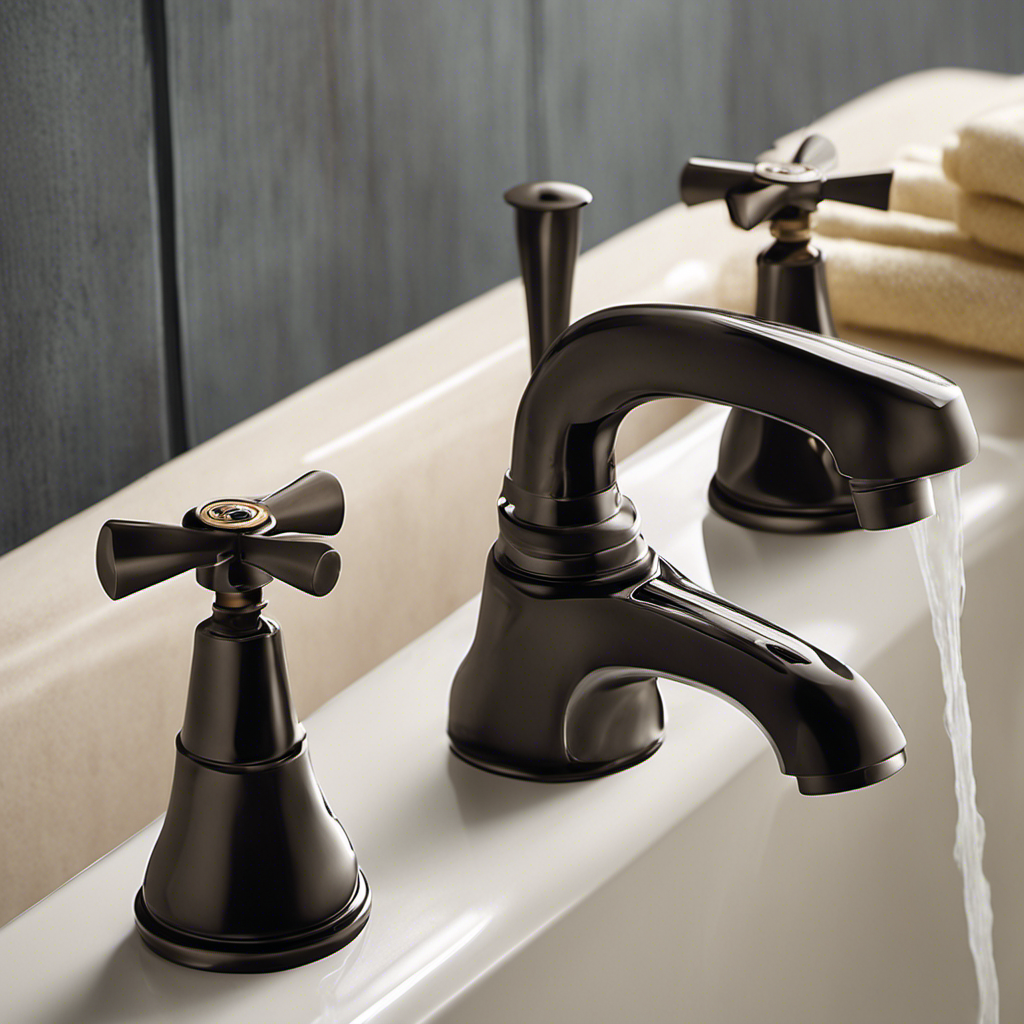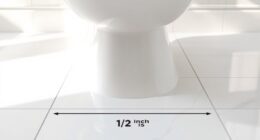I’ve always loved the feeling of stepping into a perfectly clean and shiny bathtub, as if I’m immersing myself in a world of relaxation.
But over time, wear and tear can leave our bathtubs looking dull and worn out. That’s where recoating comes in.
In this article, I’ll guide you through the process of recoating your bathtub, from choosing the right coating material to applying it with precision.
Get ready to transform your bathtub into a sparkling oasis!
Key Takeaways
- Choose a professional-grade coating for superior durability and a newly refinished appearance.
- Prepare the bathtub surface by cleaning it with mild detergent or specialized bathtub cleaner.
- Apply the coating following safety precautions and instructions for optimal results.
- Allow the coating to cure and dry for recommended times to ensure longevity, and maintain the coating by using mild, non-abrasive cleaners and drying the tub after each use.
Choosing the Right Coating Material
To choose the right coating material for your bathtub, you should consider factors such as durability, ease of application, and cost.
When it comes to recoating a bathtub, there are several options available. One of the benefits of hiring a professional for bathtub recoating is that they have access to high-quality coating materials that are specifically designed for this purpose.
These professional-grade coatings offer superior durability, ensuring that your bathtub will maintain its newly refinished appearance for years to come. Additionally, professionals have the expertise and experience to apply the coating correctly, avoiding common mistakes such as uneven application or bubbling.
Preparing the Bathtub Surface
Before starting, make sure the surface is clean and free of any debris. This step is crucial for achieving a smooth and long-lasting finish.
To prepare the bathtub surface, follow these simple steps:
-
Gather the necessary cleaning products: Use a mild detergent or a specialized bathtub cleaner to remove any dirt, soap scum, or stains. Avoid using abrasive cleaners as they can damage the surface.
-
Apply the cleaning product: Spray or spread the cleaner on the surface of the bathtub. Let it sit for a few minutes to allow the product to penetrate and loosen any grime.
-
Scrub and rinse: Use a non-abrasive sponge or brush to scrub the bathtub surface. Pay extra attention to areas with stubborn stains. Rinse thoroughly with water to remove all traces of the cleaning product.
Once the surface is clean, you can proceed to the next step of applying the coating, which will transform your bathtub and protect it for years to come.
Applying the Coating
Once the surface is clean and dry, you can now start applying the coating to transform and protect your bathtub. To begin, gather the necessary cleaning products, such as a mild detergent or a bathtub cleaner specifically designed for this purpose. These products will ensure the surface is free from dirt, grime, and any residue that may interfere with the adhesion of the coating.
Before applying the coating, it is important to take safety precautions. Make sure to wear protective gloves and a mask to avoid any potential skin or respiratory irritation. Additionally, ensure the area is well-ventilated by opening windows or using a fan. By following these safety measures, you can proceed with confidence in achieving optimal results.
Now, let’s move on to the next step: curing and drying time.
Curing and Drying Time
Now that the coating has been applied, you’ll need to allow sufficient time for it to cure and dry completely. The curing process is crucial to ensure the durability and effectiveness of the bathtub recoating.
Here are the recommended drying times for the different stages of the curing process:
-
Touch Dry: After applying the coating, it’s important to let it dry to the touch before moving on to the next step. This usually takes around 2-4 hours, depending on the specific product used.
-
Light Use: Once the coating is touch dry, you can start using the bathtub lightly. However, it’s recommended to wait at least 24-48 hours before using it regularly. This allows the coating to fully cure and harden.
-
Full Cure: For the coating to reach its maximum durability and resistance, it’s advisable to wait 5-7 days before subjecting the bathtub to heavy use or cleaning it with abrasive materials.
Following these recommended drying times will ensure that your recoated bathtub stays in great condition for years to come.
Maintenance and Longevity
To maintain the longevity of your newly coated tub, it’s important to follow a regular cleaning routine using non-abrasive materials. This will help prevent bathtub discoloration and keep the coating in good condition. Here are some tips for cleaning and maintaining the coating:
| Cleaning Tips | Maintenance Tips |
|---|---|
| Use a mild, non-abrasive cleaner | Avoid using harsh chemicals or abrasive scrubbers |
| Wipe the tub with a soft cloth or sponge | Rinse thoroughly after cleaning |
| Dry the tub completely after each use | Avoid leaving standing water in the tub |
Conclusion
In conclusion, recoating a bathtub is a simple yet effective way to give your bathroom a fresh new look. By choosing the right coating material and properly preparing the bathtub surface, you can achieve professional-looking results.
Remember to follow the manufacturer’s instructions for applying the coating and allow ample time for curing and drying. With regular maintenance, your newly recoated bathtub can last for years to come.
As the saying goes, ‘A little effort goes a long way.’ So roll up your sleeves and enjoy the satisfaction of a beautifully recoated bathtub.
